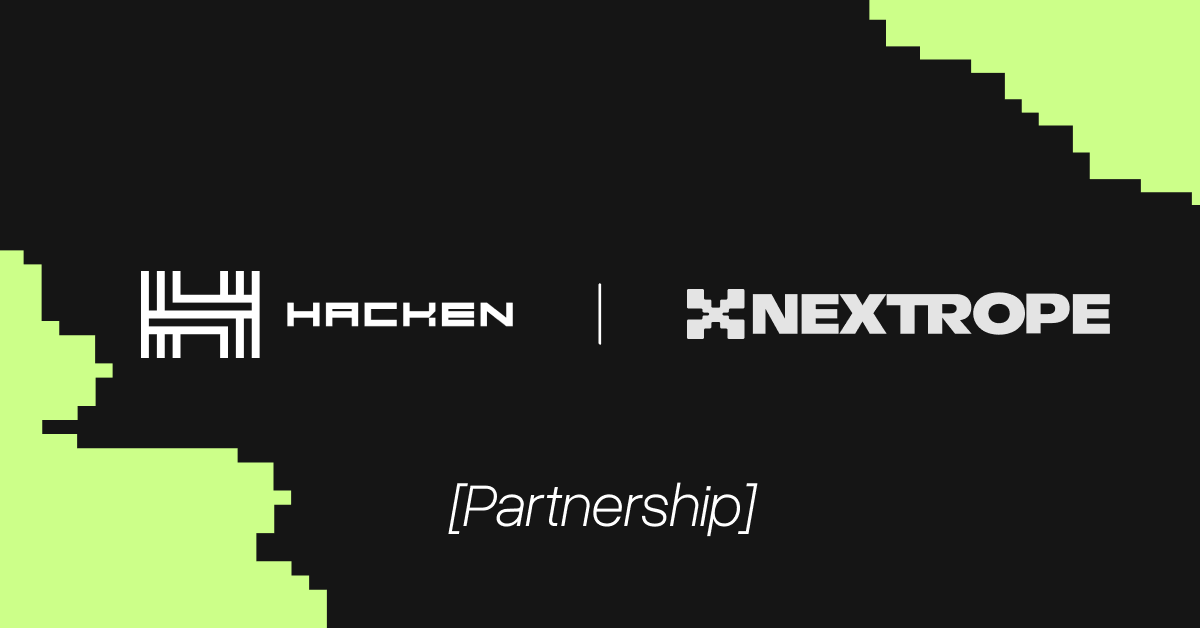Nextrope announces a strategic partnership with Hacken, a renowned blockchain security auditor. It marks a significant step in delivering reliable decentralized solutions. After several successful collaborations resulting in flawless smart contract audits, the alliance solidifies the synergy between Nextrope’s innovative blockchain development and Hacken’s top-tier security auditing services. Together, we aim to set new benchmarks, ensuring that security is an integral part of blockchain technology.
Strengthening Blockchain Security
The partnership aims to fortify the security protocols within blockchain ecosystems. By integrating Hacken’s comprehensive security audits with Nextrope’s cutting-edge blockchain solutions, we are poised to offer unparalleled security features in our projects.
“Blockchain security should never be an afterthought”
“Our partnership with Hacken underscores our dedication to embedding security at the core of our blockchain solutions. Together, we’re building a safer future for the industry.”
said Mateusz Mach, CEO of Nextrope
About Nextrope
Nextrope is a forward-thinking blockchain development house specializing in creating innovative solutions for businesses worldwide. With a team of experienced developers and blockchain experts, Nextrope delivers high-quality, scalable, and secure blockchain applications tailored to meet the unique needs of each client.
About Hacken
Hacken is a leading blockchain security auditor known for its rigorous smart contract audits and security assessments. With a mission to make the industry safer, Hacken provides complex security services that help companies identify and mitigate vulnerabilities in their applications.
Looking Ahead
As a joint mission, both Nextrope and Hacken are committed to continuous innovation. We look forward to the exciting opportunities this partnership will bring and are eager to implement a more secure blockchain environment for all.
For more information, please contact:
Nextrope
- Website: nextrope.com
- Email: contact@nextrope.com
Hacken
- Website: hacken.io
- Email: contact@hacken.io
Join us on our journey to deliver top-notch blockchain tech and a safer future for the industry!



